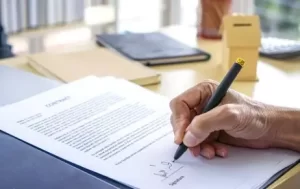The word Intellectual Property (IP) signifies the creations of the human mind. For instance, literary…
Compulsory Licensing in Thailand
Essential medicines are those that satisfy the health care needs of the majority of the population; they should therefore be available at all times in adequate amounts and in the appropriate dosage forms and at a price that individuals and the community can afford. Essential medicines save lives and improve health only if they are available, affordable, and properly used. Effective mechanisms are also required to support countries that are unable to make effective use of compulsory licensing due to the inefficiency of manufacturing capacity. Affordable prices are fundamental for improving access to medicines. Although the prices of essential medicines have significantly decreased in many cases, compared with local purchasing power in many developing countries, they remain too high. The high level of medicine prices stems from several factors, including lack of price competition, a non-transparent markup system, taxes and tariffs on medicines, the preference of health professionals and consumers for branded products instead of cheaper generics, and the lack of alternative sources for patented medicines.

In November 2006 and January 2007, the Thai Ministry of Public Health issued government use licences against patents over three medicines: (1) efavirenz, Merck’s anti-HIV drug; (2) lopinavir/ritonavir, an ARV distributed by Abbott Laboratories; and (3) clopidogrel, an anti-clotting drug sold by Sanofi-Aventis and BMS. Clopidogrel, is one of the world’s biggest selling heart disease medicines, with annual sales of US$6 billion. It was estimated that around 200,000 Thai patients were suffering from heart conditions and blood clotting problems that could be treated with the drug. Although the past decade has seen a number of developing countries granting compulsory licences, Thailand was the first developing country that issued a government use licence for a non-HIV medicine. The grant of a compulsory licence over a non-HIV drug reflected Thailand’s view that the compulsory licensing can be used for patented medicines treating all sorts of ailments, not only HIV/AIDS. It must be noted that Thailand refers to the rules available in the WTO/TRIPS to justify its action on compulsory licensing.
As for drugs required for the treatment of HIV/AIDS, the Ministry of Public Health claimed that only around 20,000 infected people were able to access the HIV treatment. The Thai Government pointed to high drug prices as the main factor for its inability to provide health care coverage. In the 2007 fiscal year, for example, public health accounts for 9.5 % of the total public expenditure, which is equivalent to 4,373 million baht (about US$112 million). With this amount, the Government claimed that it could afford to provide medicines to one-fifth of the total 500,000 of the Thai people living with HIV/AIDS at the companies’ price.
The strategies have increased Thailand’s ability to provide basic health care services to its people. They have also made treatment with selected ARV medications available for all Thais under the national health care system since October 2005. There are several success factors contributing to the improvement of access to medicines in Thailand, including the country’s relatively good health care and reliable supply systems, and the Public Health Ministry’s policy that enhances rational selection and use of drugs. The existence of a significant local capacity to manufacture generic drugs and capacity to research and manufacture affordable medicines is also critical to ensure accessibility, particularly over the longer term.
The Thai Patent Law explicitly provides for certain conditions for grant of compulsory licenses:
- non-working or inadequate working of patents so as to meet the local demand for the patented products (section 46);
- use for working of dependent patents (Sections 47 and 47bis);
- public non-commercial use of patented substances for meeting the public needs (section 51);
- use for public interest due to war or national emergency (section 52).
Under Thai law, the system of compulsory licensing is envisaged as a mechanism to encourage local working and improve free competition and to authorise the use of patented article for public interest
Arguments by owners against the practice
It is true that the practices and strategies have been proven effective for the general public interest but certain businesspersons have criticised and rejected the proposals by the government. Primary arguments throughout the regime are:
- The Thai government did not engage in negotiations with the patent holder before issuing a compulsory licence.
- Thailand had not declared an emergency before announcing the licence.
- The Thai compulsory licensing does not meet the requirement of “public non-commercial use”.
- The royalty rate of 0.5 % of the total sale value to be paid to the patent holder is considered arbitrary and too low.
- The use of the compulsory licensing would reduce the patent owner’s profits, thereby decreasing the incentive to continue research and development.
Conclusion
The non-voluntary or compulsory licensing system appears in the Paris Convention, the TRIPS Agreement, and many patent laws of both developed and developing countries. Patent rights are granted based on reciprocity between the inventor and society. The compulsory licensing is the very cornerstone of the patent system. While the law grants exclusive rights, the system ensures that such rights will not be abused by the patentee. When the patent holder fails to fulfil his legal obligation, it is justifiable for the State to intervene and allow another person to make essential products available to the public. Although the compulsory licensing provisions under the patent law of Thailand looks promising, the failure or the success of the system depends upon a strong political will of the Government. The case of Thailand has proved that government action is essential to protect patients by offsetting the patentee’s power to extract excessive prices.
Author: Tanya Saraswat- a student of Narsee Monjee Institute of Management Studies (NMIMS), in case of any queries please contact/write back to us via email to chhavi@khuranaandkhurana.com or at IIPRD.
